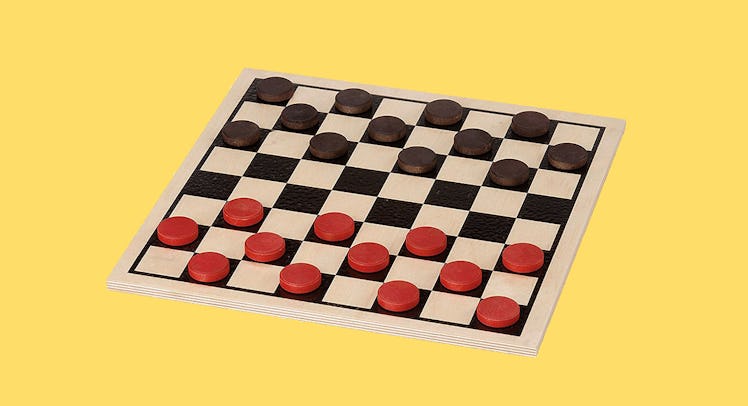The Best Board Games for Young Kids
Games to break out for your 5-, 6-, 7-, and 8-year-olds.

Whether you’re trying to pass a rainy weekend or find a quiet activity during your child’s playdate, board games offer way more than just a time-fill. In a world of button-mashing video games and phone apps, old-school board games teach kids a simpler, DIY approach to entertainment. Some require basic math skills. Others, the ability to plan a few steps ahead. Mostly, they just require an active imagination, patience to take turns, and enthusiasm to learn. Here, a few of our favorites.
Checkers
What it teaches: Strategy, thinking ahead, gamesmanship
How it works: The classic game features a checkered board and one objective: To move your pieces from side A to side B, capturing as many of your opponent’s pieces that you can as you go, or block them in so they are unable to move.
Monopoly
What it teaches: Basic math, actions and consequences
How it works: Select a playing token, roll the dice, and move yourself around the board, buying, selling, and trading properties as you go. The concept is a little advanced, so while game-savvy 6- and 7-year-olds will catch on, others might prefer the scaled-down Monopoly Junior version.
Chutes and Ladders
What it teaches: Counting, taking turns, accepting fate
How it works: If accepting fate sounds a little dire for your little one, consider that in this game, you spin a dial to determine how many steps up a ladder your pawn can go, only to find yourself back down on the first rung if you happen to land on a chute. There may be a few tears, but they’ll quickly be forgotten by the thrill of the upward climb.
Candy Land
What it teaches: Color-matching, following directions
How it works: Each player takes a card form the top of the deck, bearing one of six color choices. He then moves his marker ahead on the board to the next corresponding colored square (sometimes a card has two color dots, in which case the player moves his marker to the second corresponding square). First one to reach King Kandy’s Castle wins.
Sorry
What it teaches: Gamesmanship, humor, teamwork
How it works: Players circle their way around the board, and when they land on a spot already occupied, they get to choose what happens to its current inhabitant. Bump them ahead or send them back? It’s fun getting to decide other people’s fate.
Hungry Hungry Hippos
What it teaches: Motor control, reflexes
How it works: OK, it’s not a board game in the traditional sense, but technically speaking the plastic hippo heads are resting on a flat plastic board, so… your tot will learn dexterity, fine motor control, and self-restraint (you hope) in this game of ball munching.
Operation
What it teaches: Focus, motor control, names of body parts
How it works: Another not-quite-board game, but so good and so classic it would be remiss not to throw it into the mix. In this surgical adventure, your kid gets to play doctor and remove his patient’s innards (in this cause, from the picture of a man in his skivvies lying prone on the board). He has to move slowly and precisely though, or his surgical tweezers will touch the wrong thing and set off an alarm.
And Four Board-Free Games
These classic card games will amuse your pack of wolves for hours.
UNO
A game of strategy and chance, UNO cards can be played by number or color, plus a handful of wild cards to really mix things up!
War
The random division of a deck of cards between two players assures that someone will (eventually) win. It’s a total game of chance, but still teaches your little one the basics of greater than, less than and equal to (i.e., “War!”)
Go Fish
Test your kid’s memory with this “where did I see that card last?” game of pairing off.
Old Maid
This round-table guessing game will have your child pairing off her cards while trying to figure out where the “old maid” (Queen of Hearts) is now.
This article was originally published on